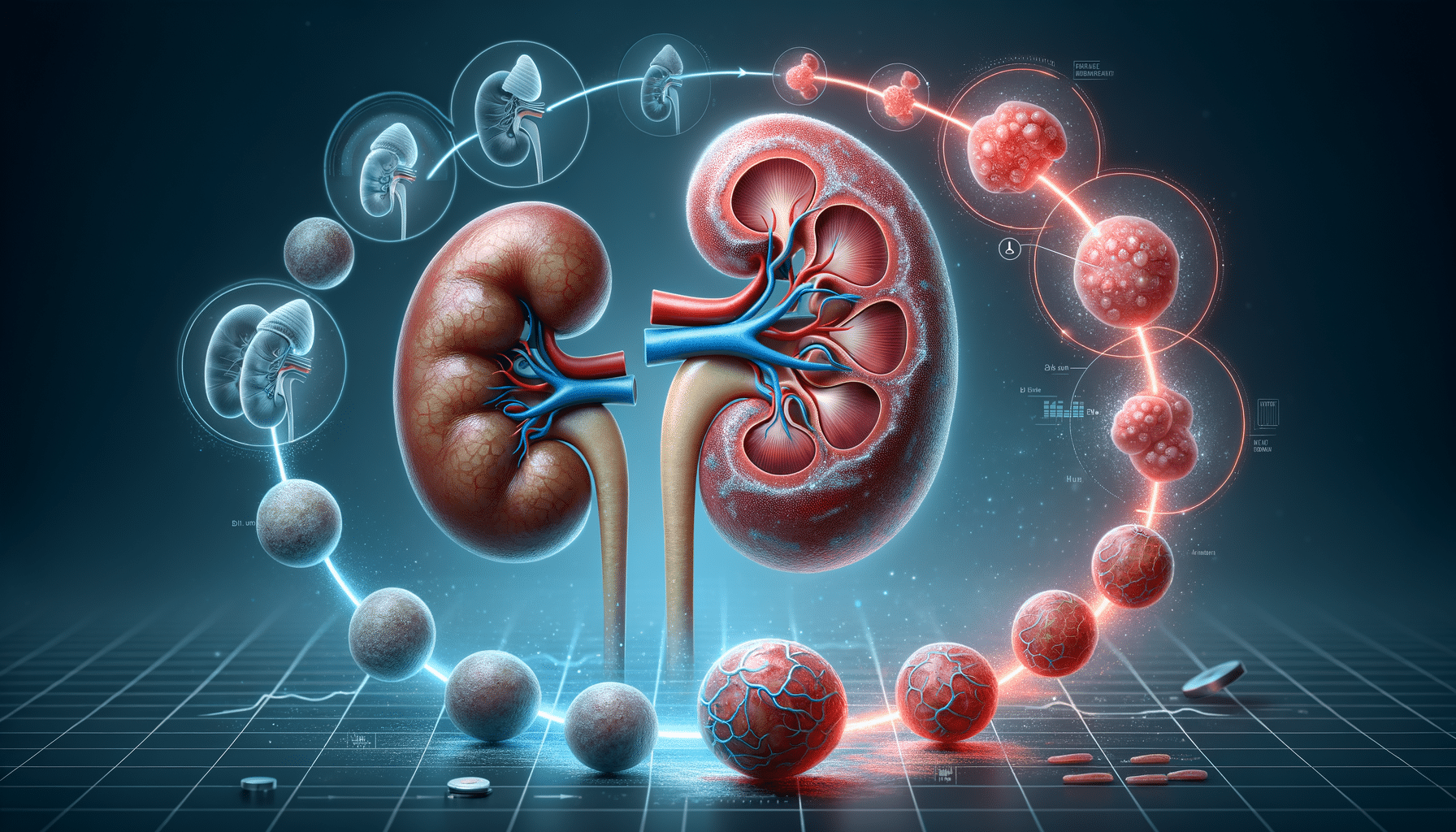
Early Detection of Chronic Kidney Disease: A Preventive Guide to Slowing Progression and Protecting Your Health
Understanding Chronic Kidney Disease
Chronic Kidney Disease (CKD) is a progressive condition characterized by the gradual loss of kidney function over time. The kidneys play a crucial role in filtering waste and excess fluids from the blood, which are then excreted in urine. When kidney function declines, waste products can accumulate in the body, leading to various health problems. CKD is often referred to as a “silent disease” because it can develop slowly and without noticeable symptoms until significant damage has occurred. This makes early detection and management vital to slowing its progression and preventing complications such as cardiovascular disease, anemia, and bone disorders.
Several factors contribute to the development of CKD, including diabetes, high blood pressure, and a family history of kidney disease. Lifestyle factors such as smoking, obesity, and a diet high in salt and fat can also increase the risk. CKD is more prevalent in older adults and certain ethnic groups, highlighting the importance of regular screening and monitoring for those at higher risk. Understanding CKD and its stages can empower individuals to take proactive measures to protect their kidney health and maintain overall well-being.
Early Signs of Kidney Disease
Identifying the early signs of kidney disease can be challenging, as symptoms may be subtle or mistaken for other conditions. However, being aware of these signs is crucial for early intervention. Common early symptoms include fatigue, difficulty concentrating, and changes in urination patterns, such as increased frequency, especially at night. Swelling in the ankles, feet, or hands, known as edema, may also occur due to fluid retention.
Other signs to watch for include persistent itchy skin, muscle cramps, and a metallic taste in the mouth. These symptoms can result from the buildup of waste products in the body. Additionally, individuals may experience a decrease in appetite or unexplained weight loss. If you notice any of these symptoms, it is important to consult a healthcare provider for further evaluation. Early detection through routine blood and urine tests can help identify kidney disease before significant damage occurs, allowing for timely management and treatment.
Stages of Kidney Disease
Chronic Kidney Disease is categorized into five stages, based on the Glomerular Filtration Rate (GFR), which measures how well the kidneys filter waste from the blood. Understanding these stages can help patients and healthcare providers tailor treatment plans and monitor disease progression effectively.
Stage 1: This stage is characterized by normal or high GFR (90 mL/min or more) with some signs of kidney damage, such as protein in the urine. At this stage, lifestyle modifications and monitoring are crucial to prevent further damage.
Stage 2: Mild kidney damage with a GFR of 60-89. Patients may not experience symptoms, but regular monitoring and management of underlying conditions, such as hypertension or diabetes, are essential.
Stage 3: Moderately reduced kidney function with a GFR of 30-59. Symptoms such as fatigue, swelling, and changes in urination may become more apparent. Treatment focuses on slowing progression and managing complications.
Stage 4: Severely reduced kidney function with a GFR of 15-29. Symptoms are more pronounced, and preparation for potential dialysis or kidney transplant may begin.
Stage 5: Kidney failure, also known as end-stage renal disease (ESRD), with a GFR of less than 15. At this stage, dialysis or a kidney transplant is necessary to sustain life.
Prevention and Management Strategies
Preventing CKD involves managing risk factors and maintaining a healthy lifestyle. Regular medical check-ups, especially for individuals with diabetes, hypertension, or a family history of kidney disease, are crucial for early detection. Blood pressure control is vital, as hypertension is a leading cause of CKD. A balanced diet low in salt, sugar, and unhealthy fats can help maintain kidney health and prevent related conditions.
Physical activity, smoking cessation, and maintaining a healthy weight are also essential components of prevention. For those already diagnosed with CKD, management focuses on slowing disease progression and preventing complications. This may involve medications to control blood pressure, blood sugar, and cholesterol levels, as well as dietary adjustments to reduce protein and phosphorus intake.
Working closely with healthcare providers to monitor kidney function and address any changes promptly can improve outcomes and quality of life for individuals with CKD. Education and support groups can also provide valuable resources for patients and their families, helping them navigate the challenges of living with chronic kidney disease.
Conclusion: Taking Control of Your Kidney Health
Chronic Kidney Disease is a significant health concern that can have serious consequences if not detected and managed early. By understanding the early signs, stages, and risk factors associated with CKD, individuals can take proactive steps to protect their kidney health. Regular screenings, healthy lifestyle choices, and effective management of underlying conditions are key to preventing and slowing the progression of kidney disease.
Empowering yourself with knowledge and working closely with healthcare professionals can lead to better outcomes and a higher quality of life. Remember, early detection is the cornerstone of effective management, so don’t hesitate to seek medical advice if you suspect any signs of kidney disease. Taking control of your kidney health today can make a lasting difference for your future well-being.